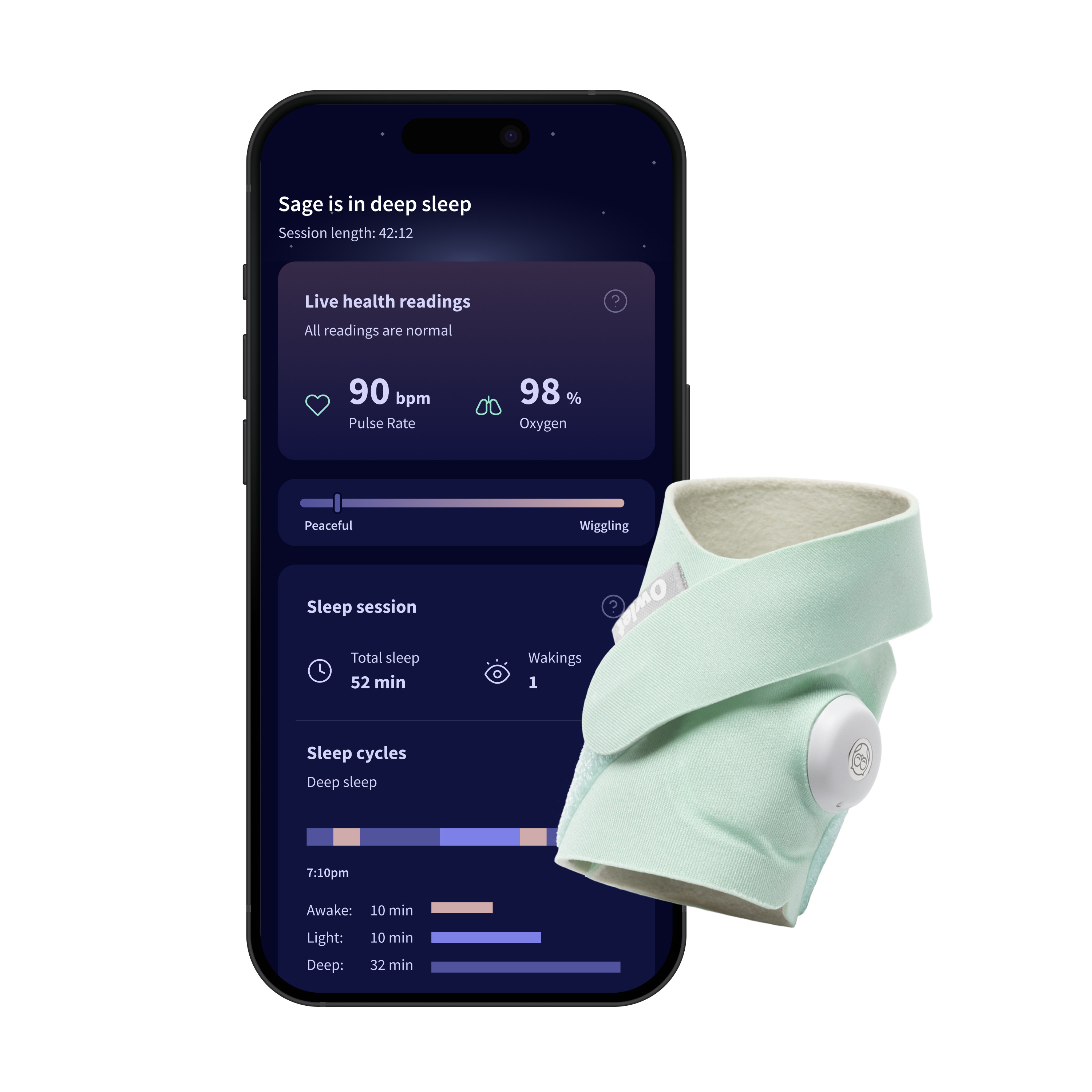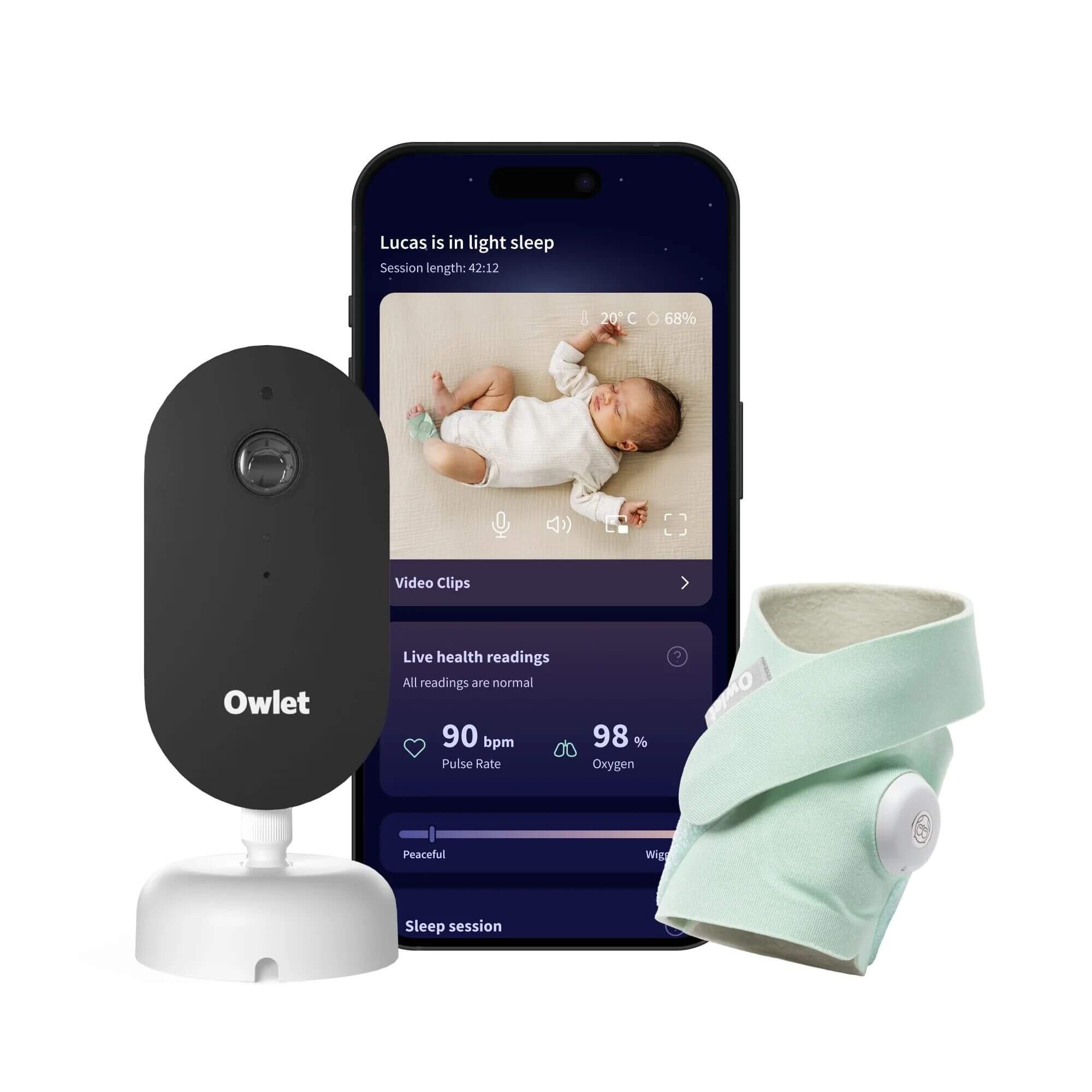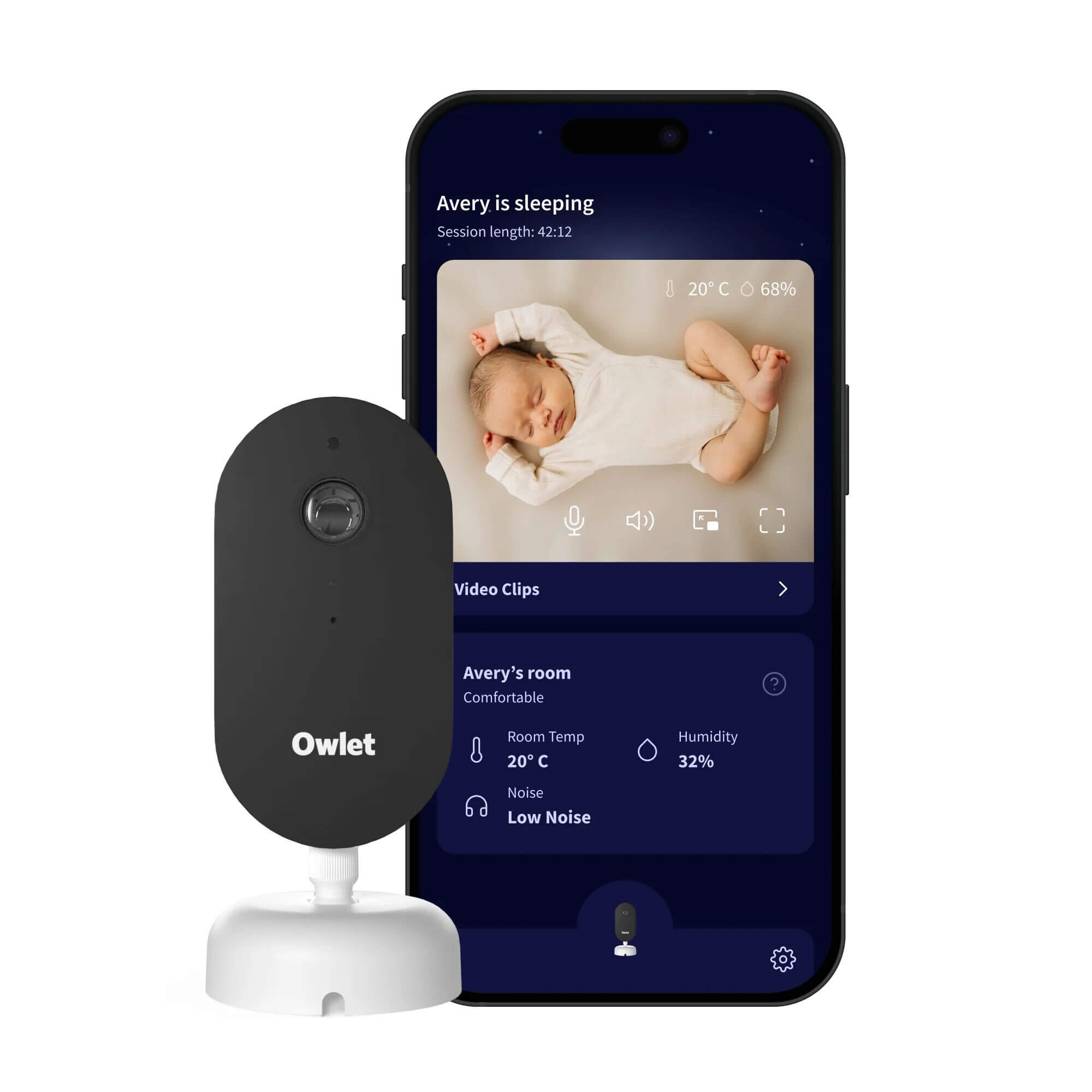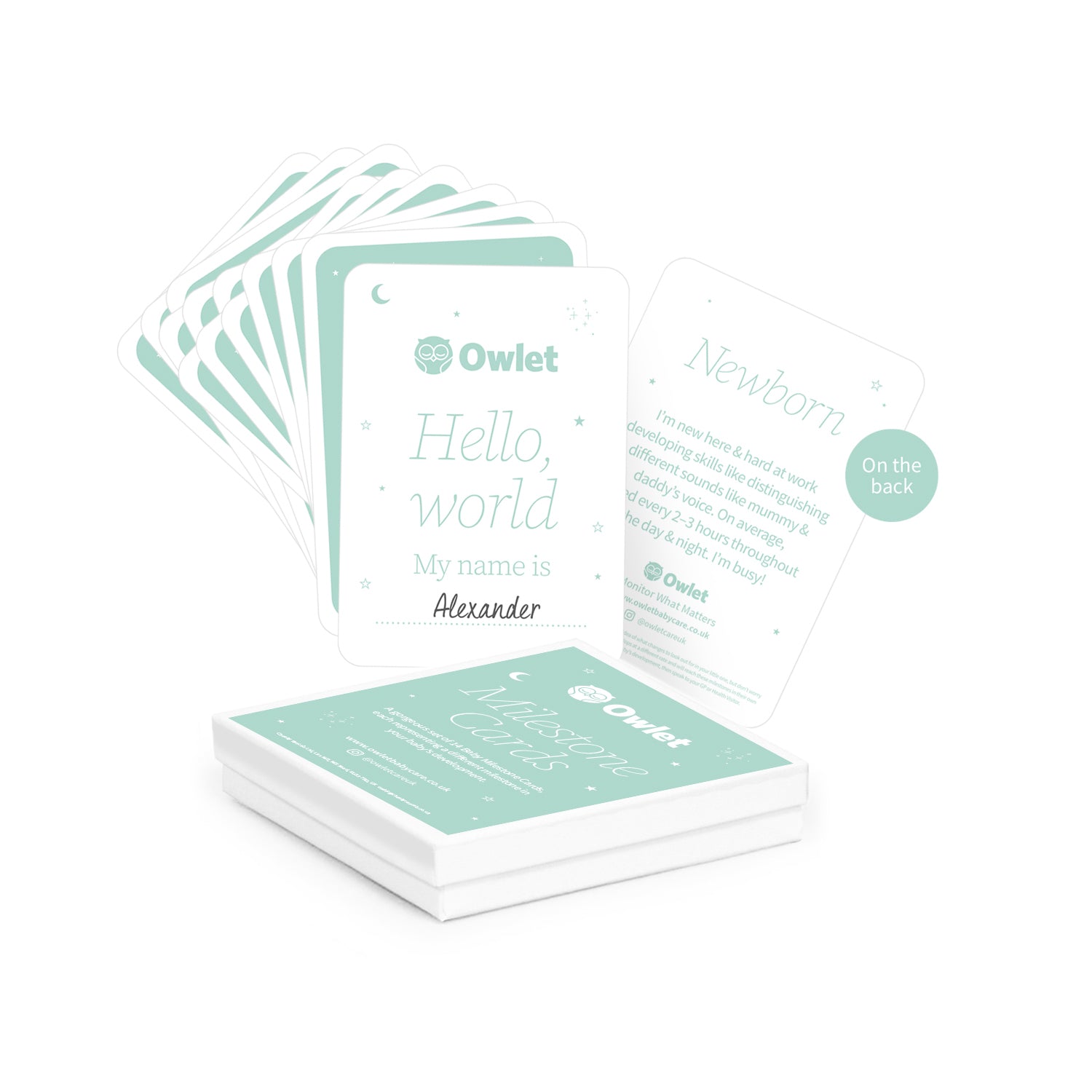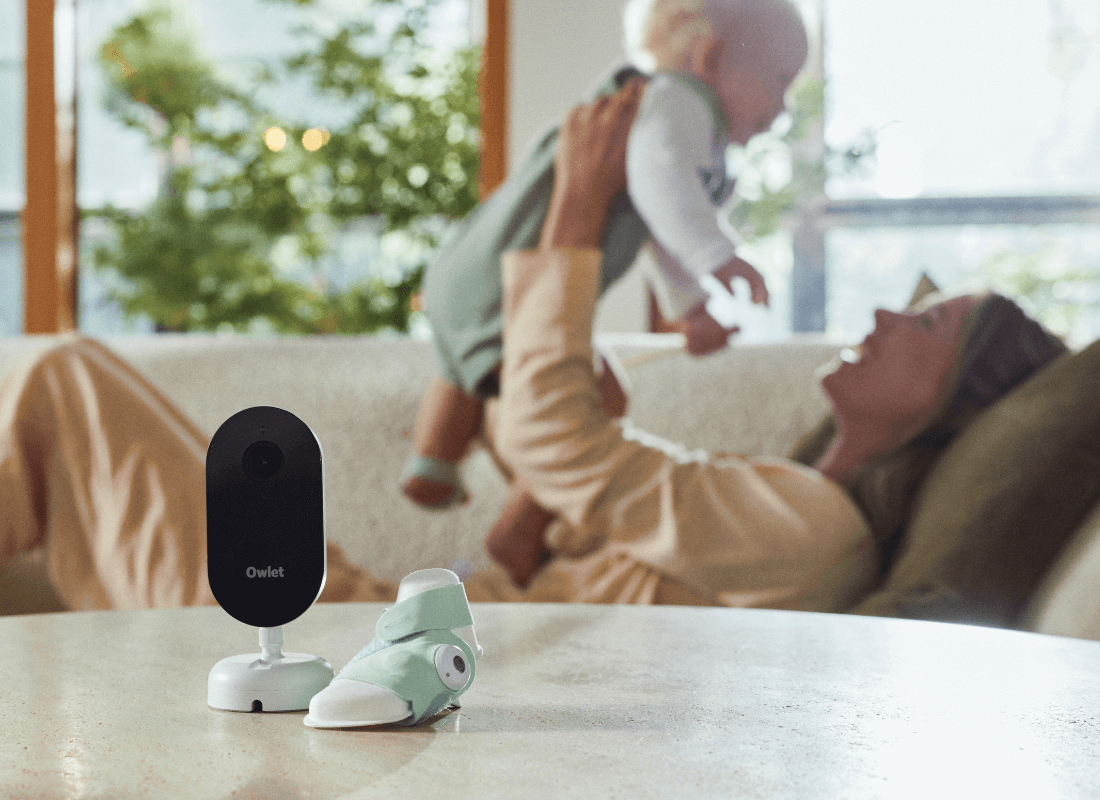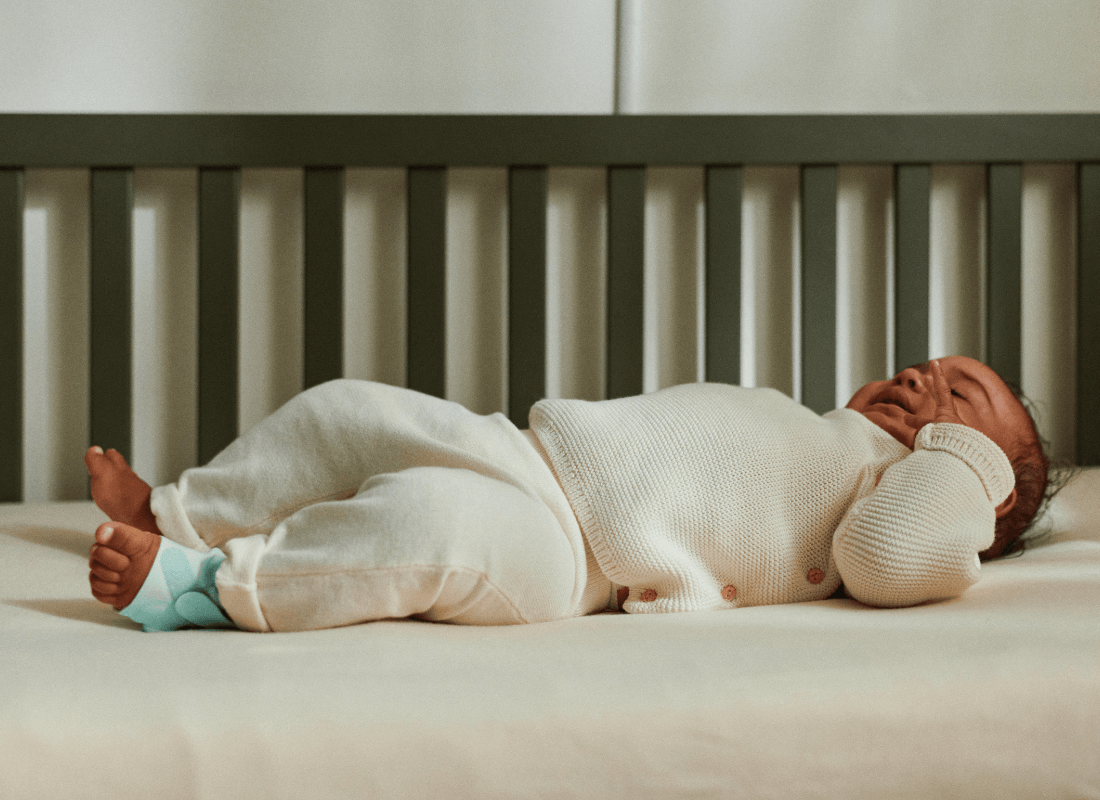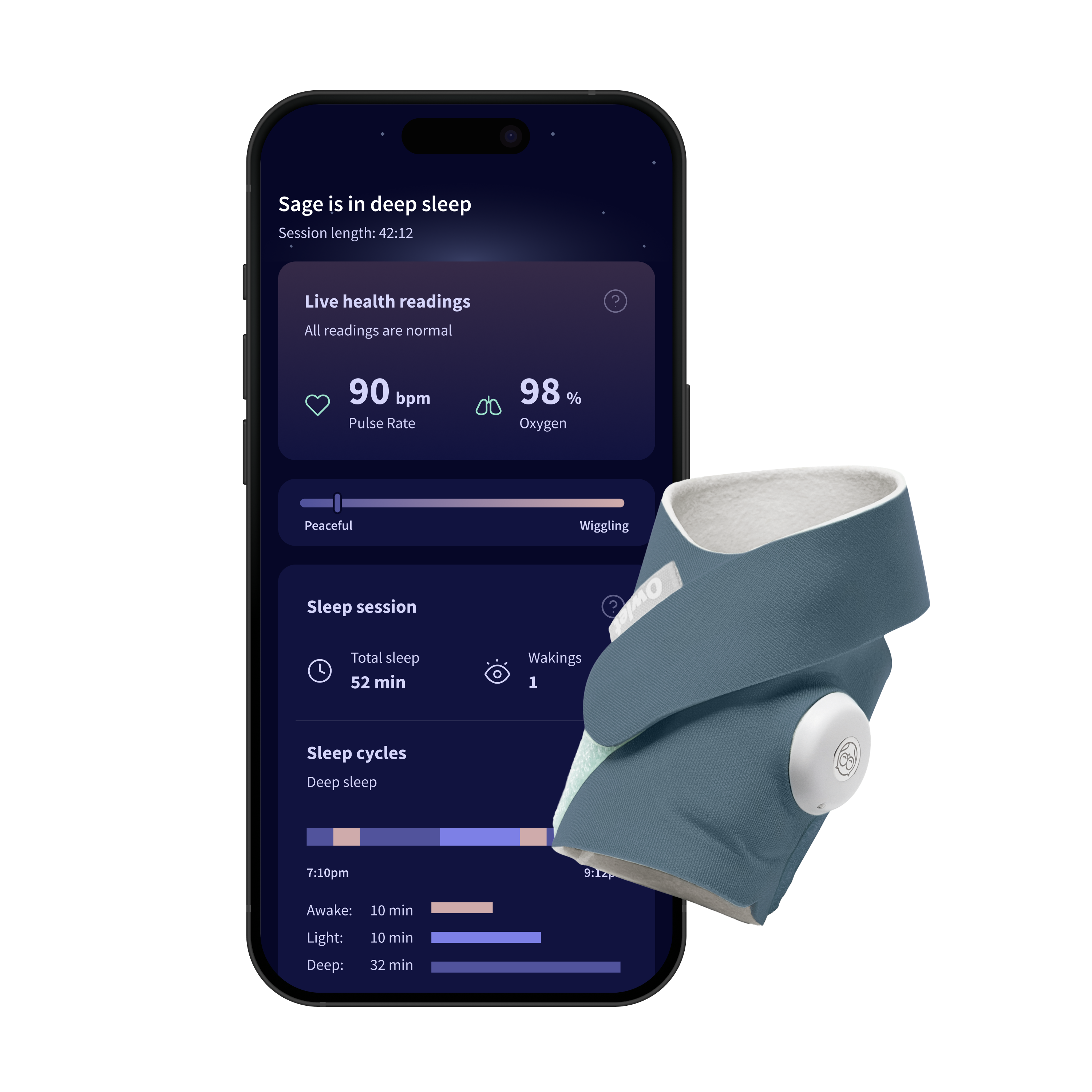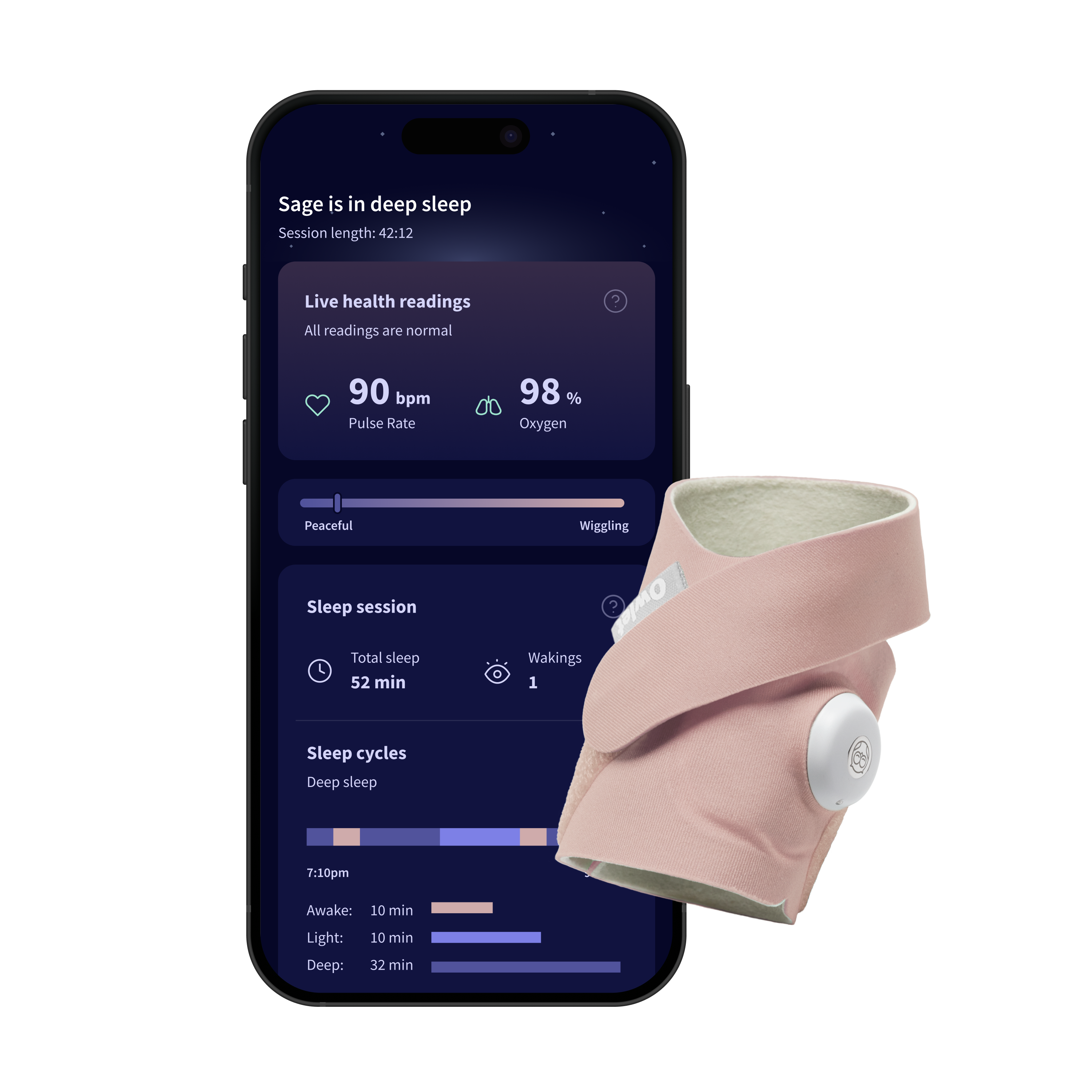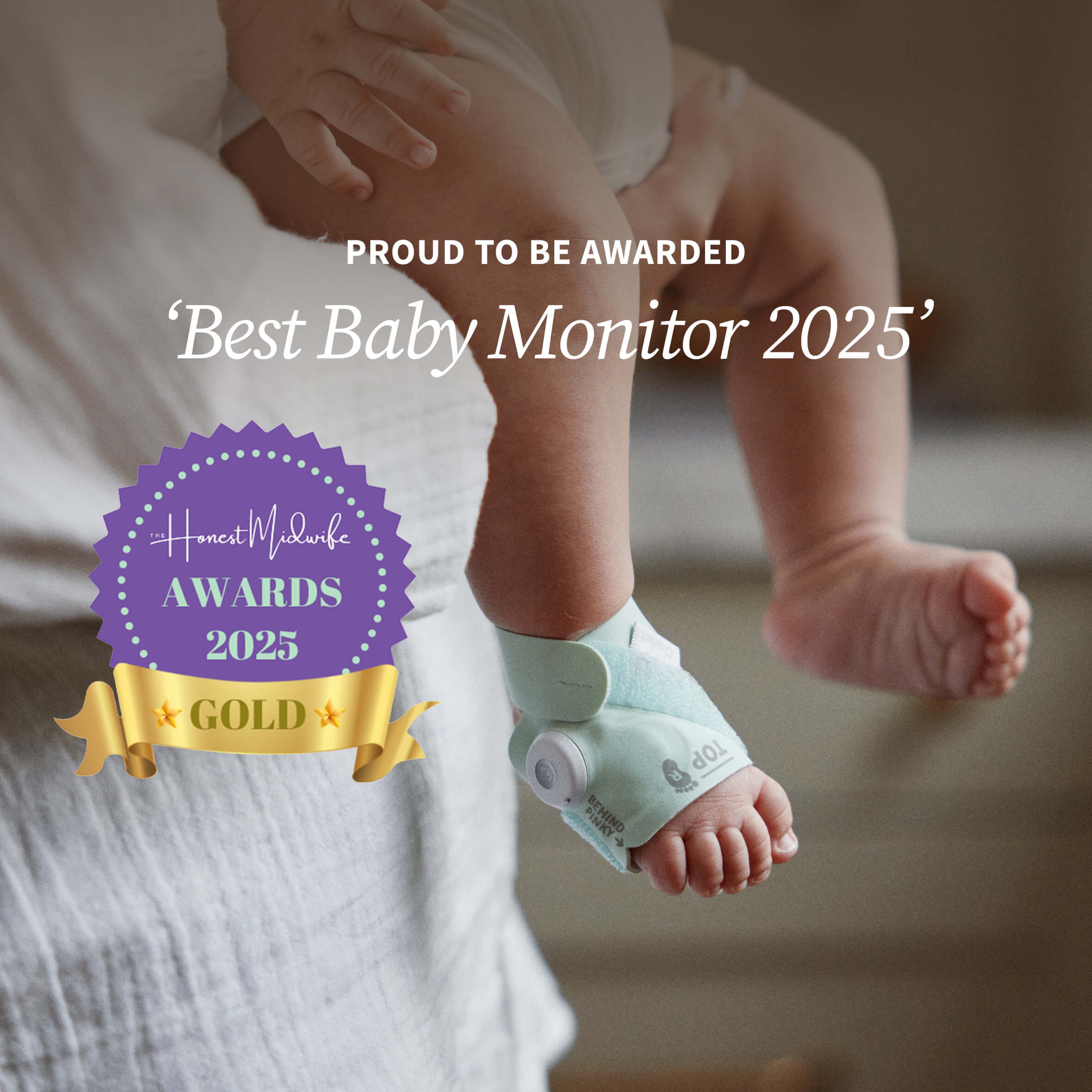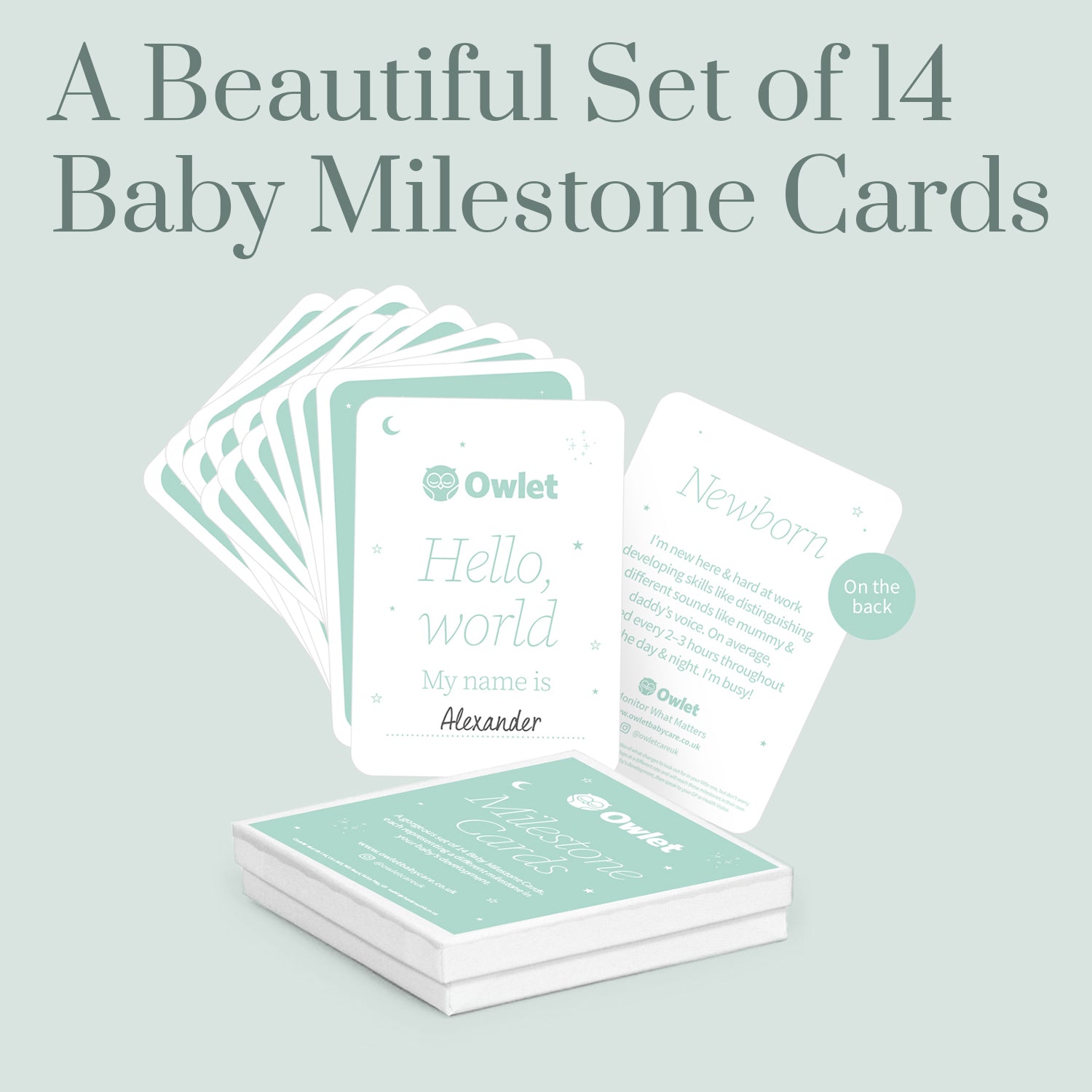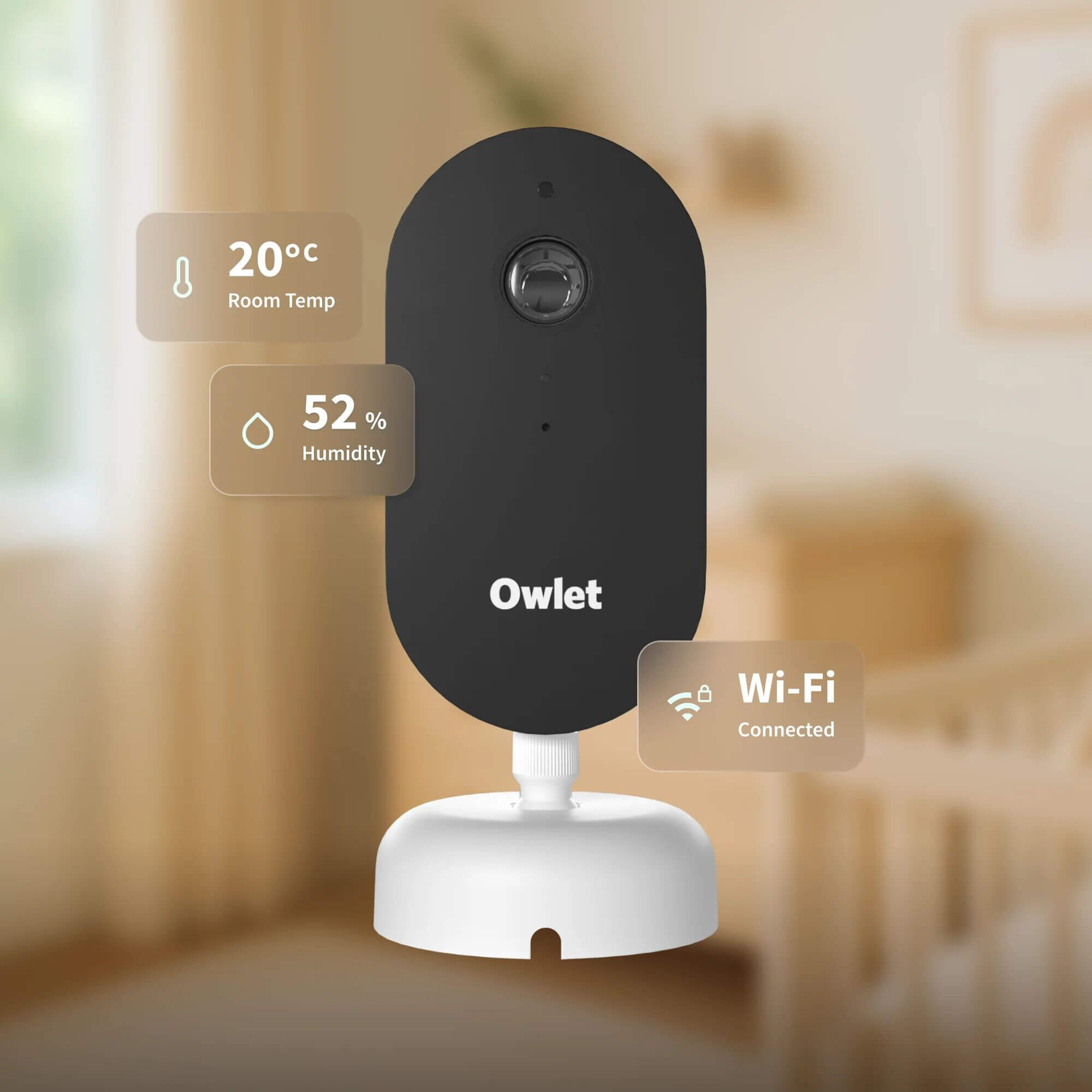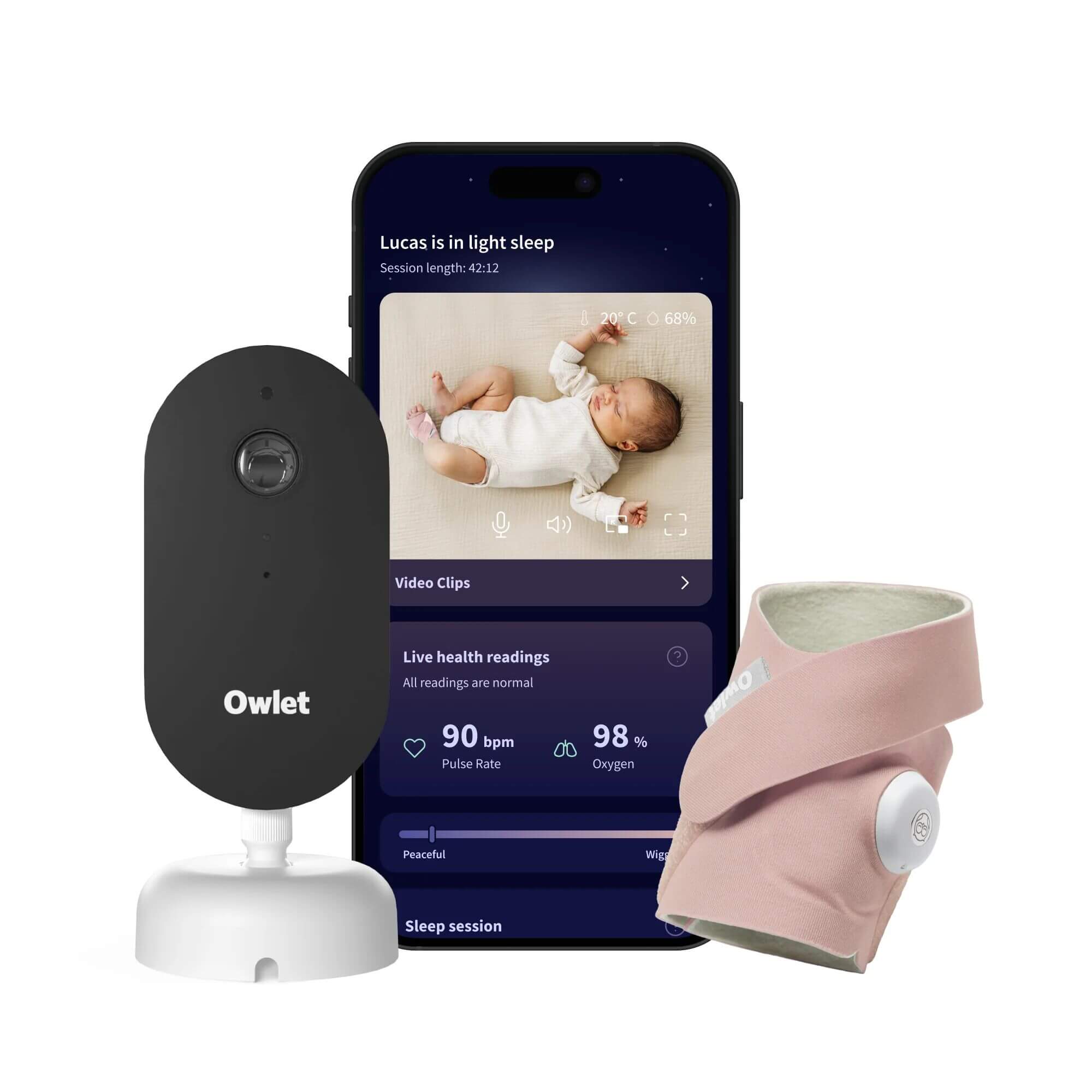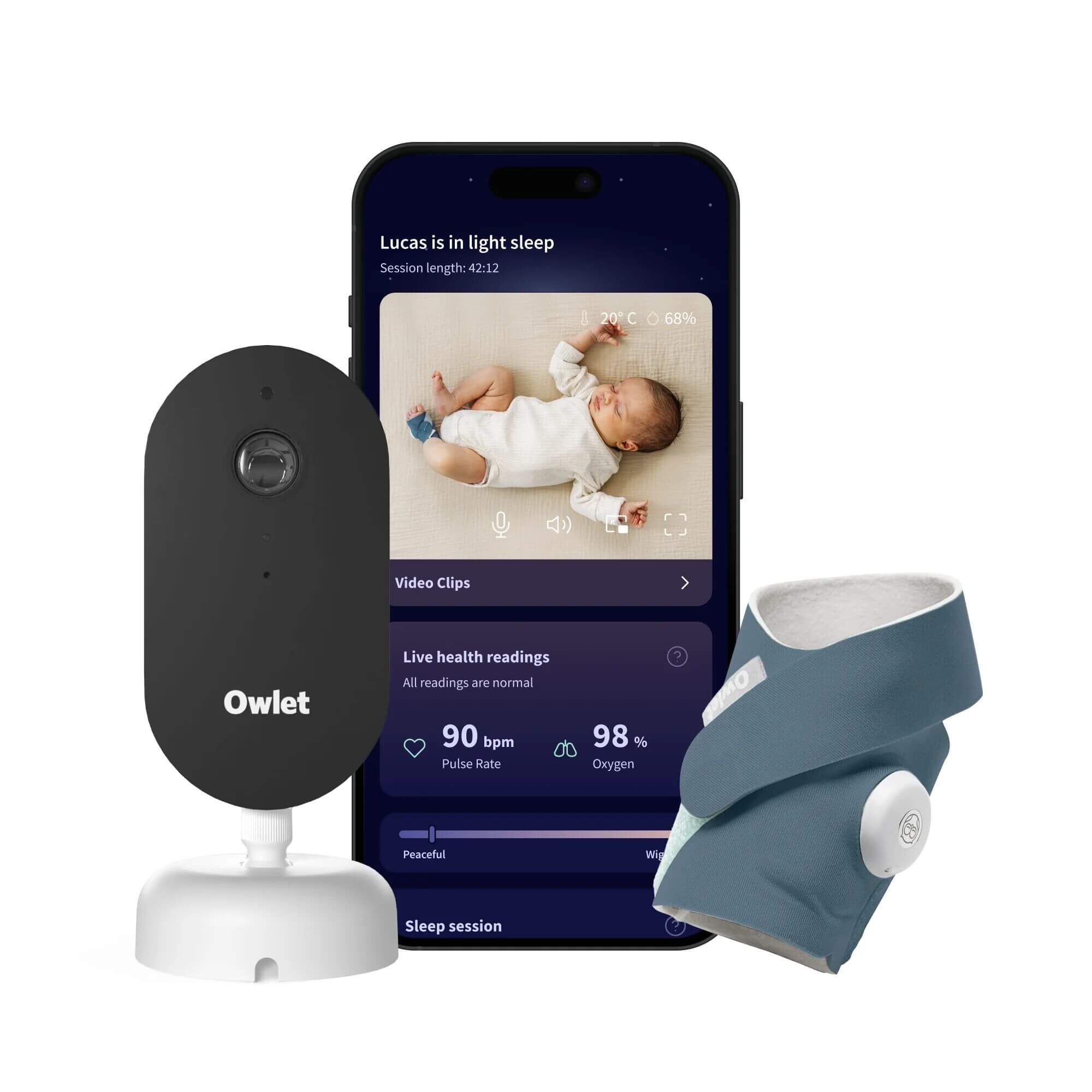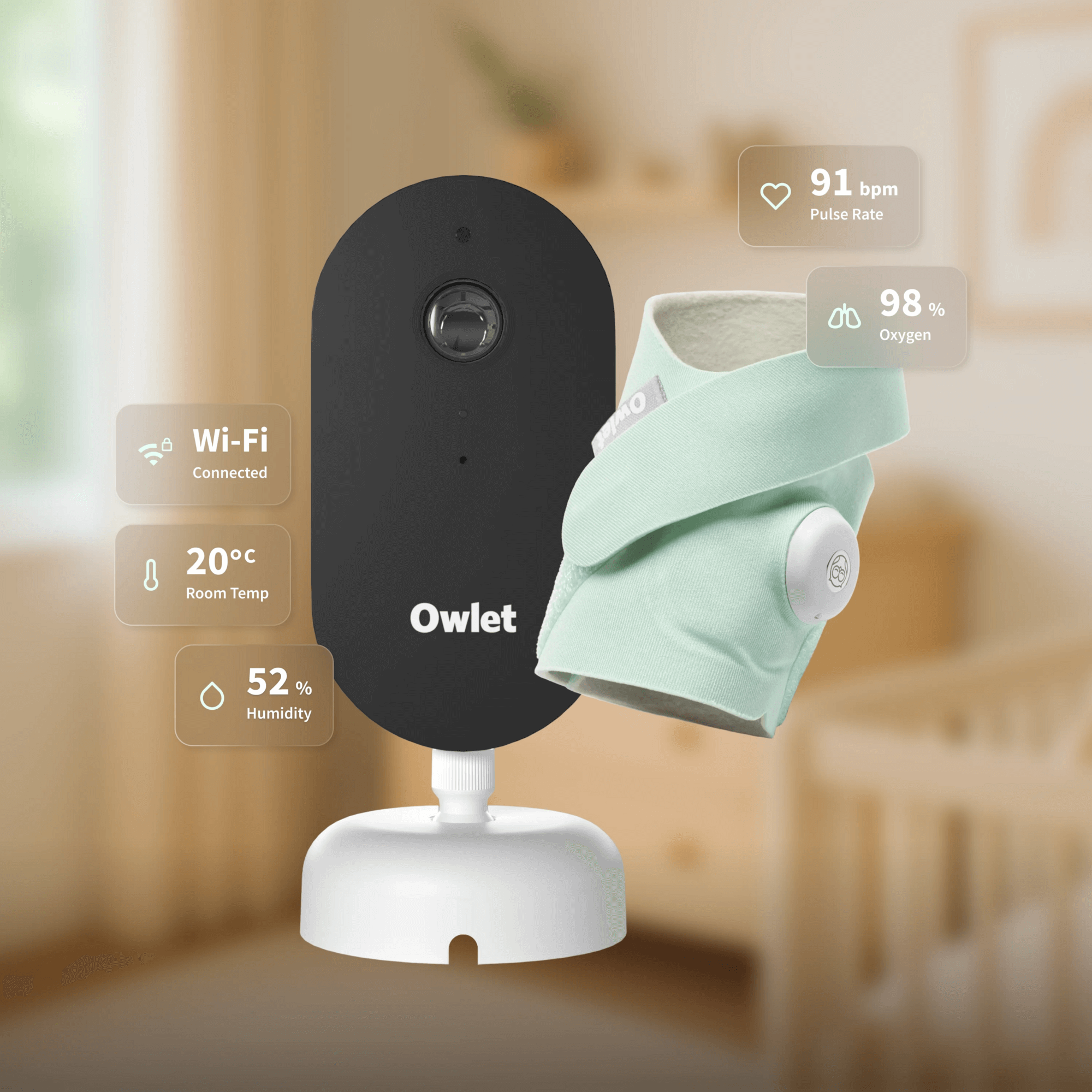Your Baby's Milestones and Sleep

The content provided on this blog is intended for informational and educational purposes only. It is not a substitute for professional medical advice, diagnosis, or treatment. Always seek the advice of a qualified healthcare provider with any questions you may have and to learn more about your child's specific needs.
From the day your baby is born they will be on a continuous journey of growth, not just biologically in the physical and mental but also through life adjustments, all of which can affect their sleep. Below I have outlined some of the key times you will notice a difference and how you can help your little one. Don't be alarmed though, with your Owlet Smart Sock and app with you from 0-18 months you can track your baby's sleep data for 30 days at a time to help. Perfect!
Major milestone 1 - newborn
‘Slept like a baby’
This phrase is often used when someone gets a good night's sleep or nap, I always aliken it to that of a newborn. When your baby first arrives they are often rather sleepy, which feels like bliss as you all settle into this new way of life. After the first couple of weeks though things will begin to change and you'll most likely see they take most of their sleep in those daylight hours as their natural sleep clock hasn't developed yet. This is now a good time to try and start implementing some day and night vibes, when they're sleeping try and have the room environment dark and at night avoid bright lights. Where possible try placing your baby down in their sleep place when snoozing, such as a Moses basket.
Major milestone 2 - between 0-6 months
Sleep maturity at 4 months
This is a big time of change for your baby’s sleep and will spark a period called a sleep regression, it's the first but also the biggest one you'll experience and can go on for a period of 4-6 weeks. There is often a lot of talk around it being a tough time but that doesn't mean it's a bad thing, once your baby comes out of it they'll be getting a lot closer to consolidated sleep so the reason behind it is a good one. Signs of the regression are resistance to sleep in the day, catnapping and sometimes not napping at all. During the night sleep will be more broken and your baby will most likely need a lot of sleep support. When you get to this time there are two ways of getting through it, keep working on your usual sleep routine but have the expectation that at times it might not work. The other option is to ‘ride it out’ and take each day as it comes.
Major milestone 3 - (6 month point could maybe work here?)
Transitioning into their own room
It's around this age you may be looking at moving your baby into their room, up until this point your baby may have been sleeping in a crib next to your bed. With this sleep method you can take a move into their room at a pace that suits you. Here are a couple of ways to go about it;
- Full steam ahead and popping your baby into their room and cot all in one go
- Start by introducing them to the room with day naps, then a few days later nighttime
- For a baby in a next to me crib or Moses basket you can move this into the room and place in the new cot, this will allow your baby to get used to the room then you can transition from the crib to the cot a few days later
Major milestone 4 - (between 6-12 months)
Learning new skills
Over this period of 6 months you'll notice a lot of physical skills developing, from rolling both ways, to learning to sit, crawl, cruise and potentially those first steps. Your baby is going to love these new skills and you may find that at some point in the middle of the night they want to use them. As with many developmental changes you're often going against nature when trying to resettle your baby at night so if they're happy to just be for a bit you can let them, then when they're showing the signs of wanting to sleep again you help resettle if needs be. Using your Owlet app in the morning you can gather how much sleep they have lost and where potentially to allow them to catch up.
Sleep regression at 8 months
There will be another ongoing change in sleep behaviour at this age that feels like your baby has regressed in a similar way to the 4 month period. However the reason behind it isn't about sleep maturity but developmental change, while it can go on for some time, about 4 weeks, it's often not as intense as the first one.
Major milestone 5 - (between 12 - 18 months)
The point of return to work
The national averages for primary caregivers to go back to work is between 10-14 months so around this age it's a big life adjustment. Many parents notice times when their little one becomes unsettled, needing more cuddles and can sometimes have an aversion to bedtime. As this is a behavioural circumstance it's a good idea to have a look at ways to change things around your home schedule to help, things such as the way you might do bedtime routine perhaps, allowing time for more books and cuddles is one way. If you're someone who gets in from work and immediately prepares dinner or previously did it towards the end of the day whilst your little one might have been keeping them self occupied, temporarily switch things up so that you do it once they're in bed or find new ways to do meal times such as batch cooking on the weekends.
2 naps down to 1
Another time when the Owlet Smart Sock comes in very handy is when your little one might need to transition from 2 to 1 naps, the timing can be confusing as there's a mini regression around 12-13 months but often the first nap is needed beyond this. In having the sleep tracking history within the Owlet app you can contact a sleep consultant who will then be able to guide you through this change, often a wean down approach with even just a 15 minute power nap can make all the difference in managing it.
- By Alexa Taylor, The London Baby Coach
